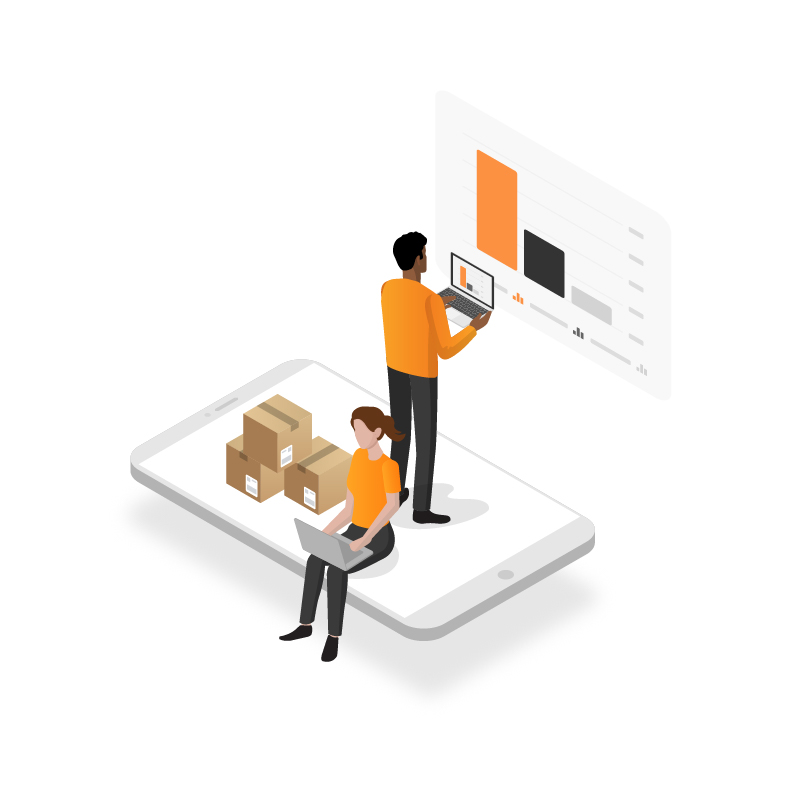Supply chains have never created a tougher market for 3PLs to operate in. Large logistics providers have set expectations around quality and speed of service. Software integrations within leading 3PL warehouse management systems bring the upper hand in responding — enabling tools for easy configuration of the product, its provision, and the visibility of the whole process.
What was exceptional last year is table stakes this year and taken for granted next year.
How do 3PLs, small and large, keep up with this rate of change?
First, focus on your value statement
What is your service? Likely, it’s not becoming a technology company. However, according to the 2023 3PL Study by NTT Data and Penske, 3PLs are expected to become their clients’ IT departments at an accelerating rate:
“The percentages of shippers indicating specific technologies as ‘must haves’ increased for 14 of the 19 IT capabilities listed in the study. The most frequently cited technologies remain those that are execution- and transaction-based, including transportation management-planning (62%), transportation management-scheduling (57%), and warehouse/distribution center management (48%)”.
If something isn’t part of your competitive advantage, it could distract from what makes you unique, and what made your customers choose you.
That’s your service, you should consider your 3PL systems the same way:
- Your fulfillment system is amazing at managing inventory and handling pick and putaway processes.
- Your WMS greatly helps with the visibility, management, and allocation of customer orders.
But what about when you need more?
Does your WMS system have baked-in, configurable capabilities for a distributed order management system (DOM) so you can tap into a drop-shipper or quickly see all variables to route orders appropriately?
Do you ask your WMS system provider for help integrating that new marketplace you have planned? It’s likely not in their value statement, either.
Good 3PL WMS systems solve this with robust software integrations (“sockets”) that liberate IT personnel and provide ultimate flexibility for your tech stack. Instead of trying to solve everything, 3PLs can create a marketplace of trusted partners providing their own targeted supply chain solutions that come together to be greater than the sum of their parts.
Better yet, it’s on demand. You extend your third-party logistics software – and your value to your customers – when you need it, not before. Along with the deep technical expertise they expect, but you don’t have.
Let’s highlight the value of 3PL software integrations over one-size-fits-all packages.
More than feature and function
- Systems Work Together – It’s tedious to extract data from one system which another system needs. We don’t have time to work from printouts, emails, and spreadsheets. Plus, data entry is slow and prone to errors. Being able to move important facts between systems speeds up the process while making related systems more intelligent and their outputs aligned.
- Seamless Workflows – Many 3PL software system integrations add value without altering the screens or process for the worker. Rate shopping a new shipping carrier? Nuanced cartonization needs? Many of these are configured to produce an answer and don’t add any additional task complexity for the user.
- No Disruption – One of the scariest aspects of any hardware or software deployment is interruption of service. Integrations like Deposco’s Bright Sockets just need to be turned on. They might require minimal configuration and then you are moving. No downtime in your facility; just features on demand.
- Time to Value – It’s a packaged offering, plug in your credentials and get going. Most require zero to minor configuration – and no multi-year bespoke software customization that takes you off the platform upgrade path. Related: Beware of the 45-day WMS platform implementation
- Predictable Spend – Because it’s packaged, it has a price tag. If it’s a subscription, you know what your cash flow is or the core KPI it is indexed off. No ballooning costs and internal resource allocation. What should you consider when planning your 3PL tech investment? Check out this related read: 6 things WMS software companies left off their brochure.
- Eliminate Duplicate Efforts – Your IT team isn’t spending time on a bespoke solution that can be bought from the marketplace. Instead of reinventing the wheel, focus your IT team on running the WMS systems the way your 3PL needs to.
- Leveraged Expertise – If you did it yourself, you’d be dabbling. Warehouse management software providers focus on and solve their problems exclusively. They are experts in their space and you are accessing that expertise. You may solve it once. Or, purchase their expertise once and let them solve it thousands of times as your business evolves.
- Reduced Scaling Effort – The sheer number of integrations that a single facility might need is huge (carriers, shopping carts, automation/MHE, etc.). Each solution can have subtle API differences or no API at all. Letting your 3PL system provider manage and maintain these integrations saves time and effort while avoiding risk.
- Only What You Want – Rather than buying a large package with features you may never use, integrations allow you to only purchase what you need. You’re not saddled with solutions looking for a problem. Only buy solutions to the problems you want to solve.
Successful implementation of 3PL integrated systems
Old WMS systems and ERP deployments were done as bespoke code projects that took years, consumed resources, and generally weren’t upgradeable easily. Rather than becoming flexible, operations became rigid and would fall behind trying to sustain last year’s solution.
Your company doesn’t have time for long 3PL software integrations that disrupt the business. And we imagine that you don’t want to be a full-time solution integrator, either.
You can’t take your focus off what makes you unique and successful. But your customers demand advanced features and expect increasing quality in execution.
Related
ERP vs. Dedicated WMS: What is the Difference?
3PL software integrations address this by allowing you to strategically add features when it’s right for you… With full support from a team who fills the gaps. Not one who prioritizes a short-term implementation – yet can’t provide exceptional long-term support and partnership.
Deposco is a WMS system for 3PLs offering +150 supply chain integrations. We invest in Bright Socket every year to ensure the modern needs of 3PL businesses and their clients are always met.

